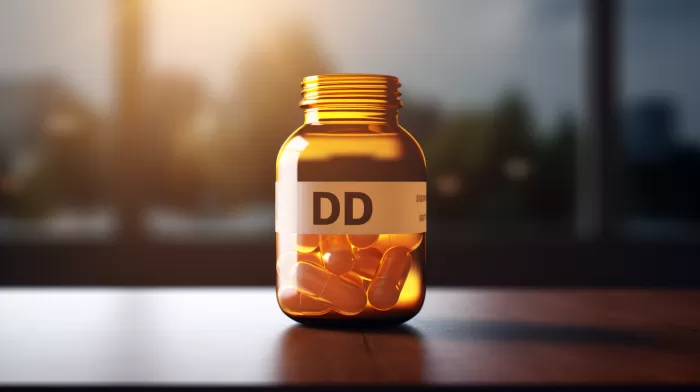Are you aware that your vitamin supplements might not contain what they claim? A recent study conducted by researchers in Oregon has shown that the vitamin D content of some supplements found on retail shelves is often not accurately represented on the label, leaving consumers uncertain about what they’re actually taking.
Vitamin Label Discrepancies
The study, carried out by researchers at Kaiser Permanente in Portland, discovered that the vitamin D content in pills from the same manufacturer but different lots varied significantly. Some capsules contained only nine percent of their claimed vitamin D content, while others had as much as 40 percent more than what the label stated.
Furthermore, the average dosages of five pills from each of the 55 bottles tested showed that only two-thirds of them met the U.S. Pharmacopeial Convention (USP) standard. With such discrepancies, it’s clear that not all vitamin supplements are created equal, and there are a few crucial things you should know to make sure you’re getting the nutrients you need.
Importance of USP Certification Seal
One way to ensure that your supplements contain the right amount of nutrients is to look for the USP certification seal on the bottle. The USP is a non-profit organization that sets rigorous quality standards for dietary supplements, and their seal indicates that the product has been independently tested and verified for potency, purity, and quality.
As Dr. Erin S. LeBlanc, the lead author of the aforementioned study, recommends, “If you have a bottle with the USP stamp on it, you can feel reassured that what’s listed on the label is actually in the bottle.” The same cannot be said for supplements without the USP seal, so be cautious when purchasing your vitamins.
Possible Health Risks
Taking supplements with inaccurate label information poses several risks. Consuming too little of a particular nutrient might not provide the desired health benefits you’re looking for, while ingesting excessive amounts can even be harmful or toxic. For instance, in the case of vitamin D, studies have shown that high doses can lead to increased calcium levels in the blood, potentially causing weakness, nausea, or kidney problems.
So how do you know which supplements are safe and effective? Always choose brands with transparency and a strong reputation in the industry. Reputable companies often have standards that go beyond USP or other third-party certifications, ensuring not only accurate dosage but also quality control and ethical sourcing of ingredients.
Read Labels Carefully
Before purchasing a supplement, it’s essential to read and understand the label so you know what to expect. Pay attention to the ingredients and the provided recommended daily dosage – this information should be clearly stated, and the amount of each nutrient should follow established guidelines, such as the Recommended Dietary Allowance (RDA) or the Daily Value (DV).
Keep in mind that supplements are designed to complement – not replace – a healthy diet. It’s still crucial to eat a balanced selection of foods with a wide range of nutrients. If you’re unsure about whether you need a specific supplement or which one is right for you, consult your healthcare professional for personalized advice.
Store Your Supplements Properly
Once you’ve purchased your supplements, proper storage is key to ensuring their quality and potency. The majority of supplements don’t require refrigeration, but it’s important to protect them from extreme temperature fluctuations, moisture, and light. Always store your vitamins and supplements in a cool, dry place, keeping them tightly sealed in their original containers.
Be Open with Your Healthcare Professional
Finally, be open with your healthcare professional about the supplements you’re taking, and don’t be afraid to ask for advice. They can better guide you toward what your specific needs might be and help you make informed choices about the supplements that will benefit you the most.
Conclusion
The study on vitamin D supplements serves as a reminder to be cautious when purchasing and consuming supplements. Not all supplements are created equal, and it’s crucial to know what you’re putting into your body. By looking for the USP certification seal, choosing reputable brands, reading labels carefully, storing your supplements properly, and discussing your needs with your healthcare professional, you’ll be better equipped to make the best choices when purchasing vitamins and supplements. Stay informed, and stay healthy.



